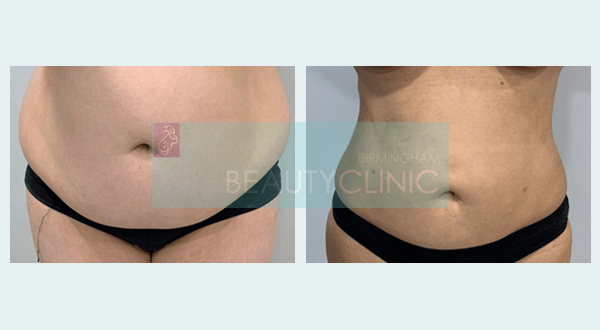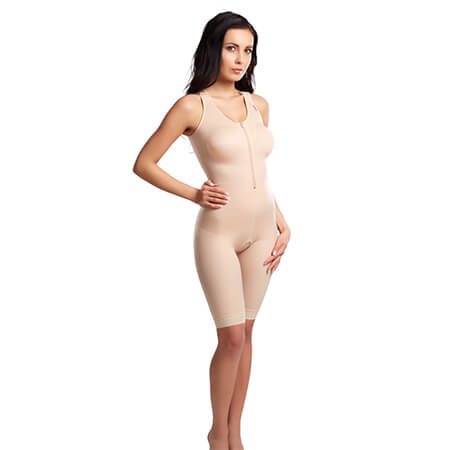There are a lot of people in and around Birmingham that have considered abdominoplasty at some point in their life.
However, many are put off by the daunting thought of what is involved and how their body will recover from it.
Abdominoplasty, more commonly referred to as a ‘tummy tuck‘ is the cosmetic surgical procedure involving surgery on or around the stomach region.
Surgery can include one or multiple methods to make the stomach look more firm, flat and thinner. This is achieved by making incisions, removing excess skin and fat, and tightening the stomach muscles.
The results of a tummy tuck sound very appealing, especially when it can reduce and eliminate a saggy and loose appearance of the midriff – often as a result of a life changing experience such as pregnancy or weight loss.

Therefore, we have compiled a short list with helpful tips from patients who have previously undergone tummy tuck surgery.
These tips can help bring peace of mind if you are unsure about surgery and bring clarity to some unknown questions you may have floating around your head.
Common queries relating to abdominoplasty include; how do you sleep, does it hurt and how do you go to the toilet.
Read on for answers to these common questions spoken by patients for patients, along with other tips and advice.
1. Walking Aid
Immediately following tummy surgery, patients can feel discomfort due to the tightening of the muscles, especially when in a straight vertical position such as standing. For the first 7 to 10 days post surgery, a walking aid such as a stick or support can help reduce pressure on the incision area and back. Often patients lean forward slightly to accommodate for the pain in the tummy, so a stick or support can provide some relief.
2. Compression Pants

Following surgery, you will be provided with a supportive binder to compress and hold the stomach in tight. However, compression pants can also assist in supporting the stomach, especially if the incision is very low down as binders can sometimes move up the body when moving around and bending.
3. Bandage Gauze
If your surgery requires you to have a drain, then bandage gauze pads can be used to pad the drain site placed between the support binder and hip bones. However, some tummy tuck procedures do not require a drain and are performed in a way where fluid build up is kept to a minimum and absorbed by the body.
4. Sickness Remedies
One common side effect of a tummy tuck is the feeling of nausea. This can usually be linked to a combination of mild trauma to the body, anaesthetic and strong pain killers, which are used to alleviate discomfort. Therefore, it may be a good idea to acquire some anti-sickness medication before your procedure so that you are prepared for this eventuality. Staying hydrated will also help towards preventing nausea.
5. Compression Socks
High compression socks are an item of clothing that are worn during many surgical procedures to reduce the risk of blood clots. Keeping these on for a few days post surgery will help to continue minimising this risk during your immediate recovery.
6. Showering
After your abdominoplasty procedure, you will be provided with an aftercare plan and advice on what you can and can’t do. Showering or partial showering is one thing that is best left for a few days if possible, so that you provide yourself with the best chance possible at immediate recovery. In procedures that require a drain, it can sometimes be difficult to manoeuvre this when taking a shower, so if you feel you need to have one, make sure someone is on hand to assist you.
7. Pain Relief
Pain relief can be managed in two parts – pre surgery and post surgery. Some patients choose to use tissue numbing medication before their tummy tuck to reduce immediate pain and discomfort for 3-5 days post surgery. Oral pain killers can then be taken after their operation to curb any painful symptoms.
8. Sleep
Sleeping is always a good medicine for recovery after cosmetic surgery or any operation. However, it can help if you feel comfortable enough to actually get to sleep in the first place. Resting with your legs up in a raised position with your waist bent can provide a more comfortable posture. Some patients are lucky enough to own a recliner sofa or chair in their home, these are great for recovery as minimal moving and strain is required to move in to position ready for sleep.
9. Toilet Time
Tummy tuck patients often report feelings of discomfort and pain when squatting down. This can often make going to the toilet difficult and a chore. However, investing in a toilet booster seat can help raise the height of the toilet so that minimal squatting is required during a visit to the toilet. Adult toilet boosters can be purchased from retail stores and businesses that specialise in elderly and disabled who may be less mobile and require assistance in this area.
If you are worried about the prospect of abdominoplasty or would like to know more tips and advice, contact us today for a friendly chat on 0800 007 5860. We are always happy to help patients get peace of mind and ensure you feel as comfortable as possible before, during and after your surgery. Book Your FREE Consultation Now. For more details about Tummy Tuck Surgery, visit:
https://www.birminghambeautyclinic.co.uk/tummy-tuck-surgery-birmingham/
Share This Post
Facebook
Twitter
LinkedIn
WhatsApp
Email
Pinterest



